Creating empathy & authenticity in our work is important: Josy Paul
The ‘Share the Load’ campaign for Ariel has bagged quite a few awards at different awards platforms. The campaign by BBDO India goes beyond the product benefit of stain removal and clean clothes and address the issue of gender inequality at homes. The campaign won in all the three categories that it had entered in, in the recently held Effies India Awards 2015, pocketing two Gold Effies and a Bronze Effie.
In conversation with Adgully, Josy Paul, Chairman and Chief Creative Officer, BBDO India, and Rajat Mendhi, Vice President – Planning, BBDO Mumbai, speak at length about the thought process behind the campaign, pushing the benchmark even higher, the stress on empathy and authenticity in every work that the agency does and more. Excerpts:
Ariel Share the load
https://www.youtube.com/watch?v=9tsAMNvt2qg
AG: Prior to the Effies 2015, the Ariel Share The Load campaign has won at various awards platforms. Were you expecting the campaign to put up an equally strong show at the Effies 2015?
JP:We got a 100 per cent conversion. BBDO Mumbai had sent only three entries for Effies 2015 and all of them won – two Golds and one Bronze.
Even before the awards, to be honest, when we first came out with the campaign in January last year right up till March-April, we were very sure about the campaign, about its effectiveness. Not too many people would have commented about it then, but while working on it, we could feel the energy in the idea. The truth about the product is that it stands for best in class cleaning and stain removal, but that was not enough. We needed to find a social, cultural tension point to where this product could add value, beyond just its performance, at an emotional level. That’s where when we came up with the idea of ‘is laundry only a woman’s job’. When we put that down, we knew we had something very powerful and research further underlined it – when we put that hypothesis into research, we found 87 per cent men believed that laundry is really a woman’s job. That is when Ariel decided to challenge this inequality at home and ‘Share the Load’ suddenly created a lot of buzz, especially in social media. A lot of influencers wanted to step forward and be part of this. And that automatically created a lot of interesting ideas that led to almost a long tail of different things that happened. That’s why it won at Integrated, because it wasn’t just about one film, the film was the trigger. The film that we started off with showed two women talking about how wonderful things are today for women and how they are achieving things, when suddenly we see the son asking his wife if she had washed his shirt. The contradiction was a nice new provocation, if I may use that word, to the society. The way we look at it is that these provocations are for a greater good and really push in a more progressive attitude. And I think that seemed to have resonated really well and we saw growth in equity, in consumer connect.
Before all the awards, we knew that we had found something that could create huge energy in society. And you will see that a lot of our work has that energy. It’s not just a creative piece of work, it’s not just about effectiveness, it’s about change.
AG: After this campaign, how do you push the benchmark even further?
JP: That is a big challenge, but I think if you forget about merely cracking the next one and think about how you can truely create change, where the brand plays an essential role in that change. The moment you look at it from the lens of change you automatically have an answer to what you are going to do next. Unfortunately, I can’t reveal that yet, it is still a work in progress.
AG: Effies is the first of the major industry awards of the year. How do you see this setting a precedent for the industry?
JP:I think the good thing about what happened at Effies is that it starts the year on an effectiveness platform. So while it is a look back of the year before, it is wonderful to see that you start the year discussing what really helps brands do well. That’s a good signal to have it in January. It’s like a new year resolution, it makes everybody say I’m going to be more effective this year, I really want to do something where the benefit is there very clearly for brands. It feels like a good signal for the year ahead, a year of effectiveness, if I may say so.
AG: Going forward, what major developments can we look forward to from BBDO this year?
JP: While it is an important question, you see that a lot of work that we do, they are like brand movements. And in the case of brand movements, you can’t just say that this is what you are going to do. It’s like a news channel, here we are creating news for our brands and that is dependent on the spirit of that time and what is going on at that time. We respond to that and try and make a difference. So it is very difficult for me to say that this is what we are going to do. It depends on what is going to happen in the society and that will tell us what we are going to do. We respond to what is here and now. Of course, we are going to look at amplifying our brand messages in a way that consumers relate to and want to engage with. And that has always been our purpose.
We are going to create more acts and not just ads that we would be talking about all the time. We are looking at creating greater empathy in our work because we find that in today’s world that’s what people want; in a world where there is so much disconnection because of too much connection, the need for empathy is at its highest. It you look at a lot of our work and I am sure that the work that has been winning for other people, it’s the empathy of that message where everybody connects to it – that is something that we would want to up in our work. The other thing that we would like to up in our work is the authenticity. Its things like these that makes the year so exciting for me. I can’t put numbers to it, I can’t state that this is our grand plan, but it’s really the seeds in our work that’s important for us – empathy and authenticity. If we can do that in our work and people look at our work and say “That’s so true”, we will feel we’ve been awarded even before any awards season.
Rajat Mendhi, Vice President – Planning, BBDO Mumbai
AG: On winning at the Effies.
RM: The Effie India Golds for the Cannes Glass Lion winning Ariel ‘Share the Load’ campaign underlines our belief that the best work works best. At BBDO we believe that creativity works best for our clients and the brands that we work for. Ariel ‘Share the Load’ has won big in creativity awards, effectiveness awards like the Effies and WARC, etc., which proves that the creative work works really well. It’s a validation for us when we get a Gold at an effectiveness award.
AG:How does BBDO ensure the balance between creativity and effectiveness in the work that it does?
RM: At the end of the day, we are in the business of helping brands grow, so creativity for the sake of creativity just doesn’t work. Whatever we do needs to deliver results for the client. What we believe is work that really shines through in terms of creativity does that. To ensure that our work stands out, is noticed and works strongly for the client, we look at how we can couch our clients messages or the brand messages into a larger social-cultural context which allows people to talk about it, to interact with an idea and get involved in it.
In the case of Ariel, the message that we wanted people to understand was that Ariel is a product that delivers great stain removal, but we couched that with the larger context of removing the stain of inequality at home. It made our message more relevant to people and created an environment where people could speak about the message, spread it and made them relate to the brand more, which in turn led them to buy the brand.
AG:While strategising on the campaign for Ariel, how did you come up with the idea of highlighting the issue of gender inequality at home?
RM:As we do for most of our brands, we start off with understanding the core of our brand and what it stands for. From what we had seen about Ariel in the past, we found that Ariel as a brand had already stretched its boundaries in terms of portraying men doing laundry that pushed certain stereotypes forward. We looked at what the message needed to deliver, which was one-wash stain removal and secondly, it was so easy that anyone could do it. Putting those two things in perspective, we looked at a larger social context that a message like this could play out in.
Shanta@adgully.com


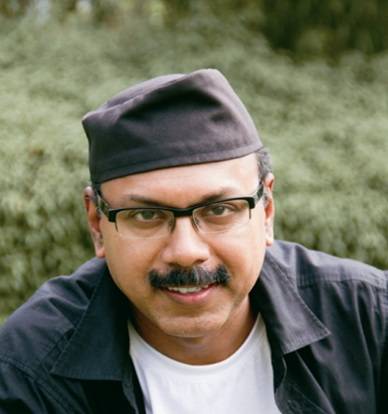





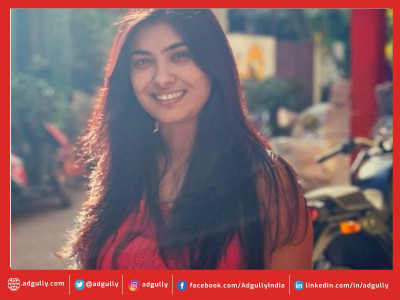
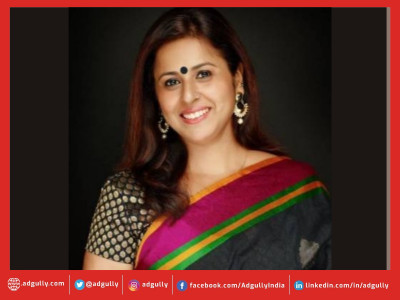
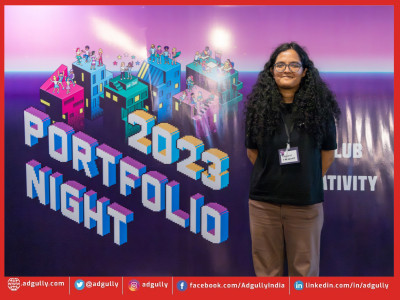
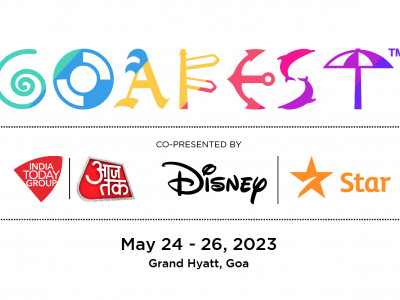
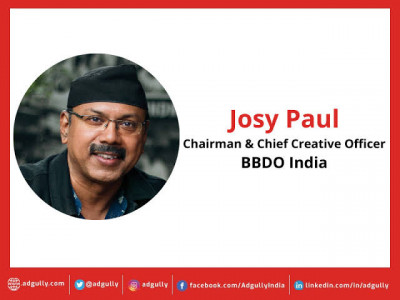
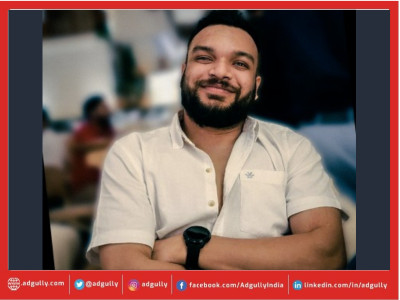
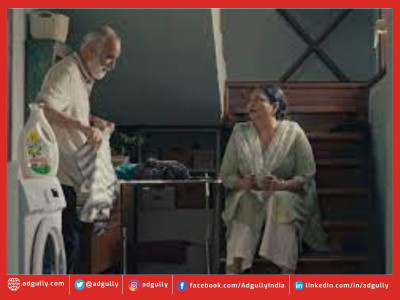
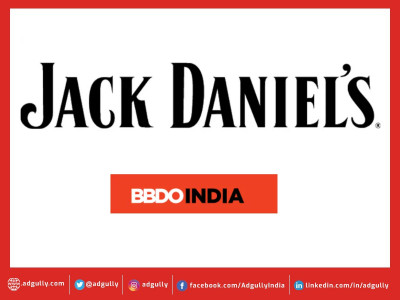


Share
Facebook
YouTube
Tweet
Twitter
LinkedIn